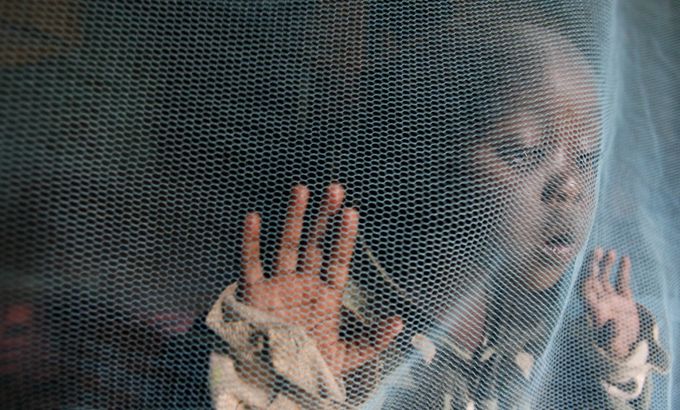
Where is the money for malaria?
It kills 655,000 people a year but there is a $3bn shortfall in funding.
It is a disease with a 50,000-year history. And it still kills 655,000 people a year – 85 per cent of which are children under the age of five.
And that is an improvement. Between 2010 and 2011, cases of malaria actually fell by 17 per cent – as a result of simple, medicated mosquito nets given out to those who need them most. Many of those people are in Africa, where the prevalence of malaria is highest.
Keep reading
list of 4 itemsWoman, seeking loan, wheels corpse into Brazilian bank
UK set to ban tobacco sales for a ‘smoke-free’ generation. Will it work?
Poland lawmakers take steps towards liberalising abortion laws
In 2004, total mosquito net distribution was around five million pieces. But now about 130 million of them have been given out.
However, that good work is being threatened in these tough economic times. There is a $3bn shortfall in funding for malaria treatment and prevention. And, as Counting the Cost finds out, there are new, drug-resistant strains of the parasite emerging along the Thai-Myanmar border.
Drug-resistant strains of malaria have historically arisen first in South-East Asia, but it could happen anywhere. That is because drug-resistance is caused by things like bad quality combination drug therapies, counterfeit medication and over-prescription.
World Health Organisation officials say that the campaign against malaria needs more money and more political awareness. Without that, the world could be looking at the very real prospect of a deadly disease with little or no treatment.
So, what can be done about it?
We take a look at a malaria vaccine that the pharmaceutical giant GlaxoSmithKline claims could change everything. It has been 30 years in the making and is in the final stages of trials in 11 locations across Africa.
Sophie Biernaux, who leads the malaria vaccine development programme at GlaxoSmithKline, talks to Counting the Cost about her hopes for the vaccine. And we ask if it will reach the people who need it the most.
Plus, how does an economic crisis impact funding for things like malaria treatment and prevention? We speak to Dr Jo Lines, a reader in malaria control at the London School of Hygiene and Tropical Medicine, and Dr Christoph Benn from the Global Fund.
And, finally, we go to Kenya, where poverty is forcing thousands to self-medicate using cheap over-the-counter drugs that do not do the job, while countless others suffer from late diagnosis. A group of medical students, however, have developed a mobile phone app that could save lives.
It works as an SMS service. People key in as many symptoms and details as they would tell a doctor and their information is sent to a comprehensive malaria database put together by the students. Within minutes, a response is sent informing the user of whether or not they have malaria and directing them to a nearby health facility or doctor.
Watch each week at the following times GMT: Friday: 2230; Saturday: 0930; Sunday: 0330; Monday: 1630. Click here for more Counting the Cost. Follow Kamahl Santamaria @KamahlAJE and business editor Abid Ali @abidoliverali |
